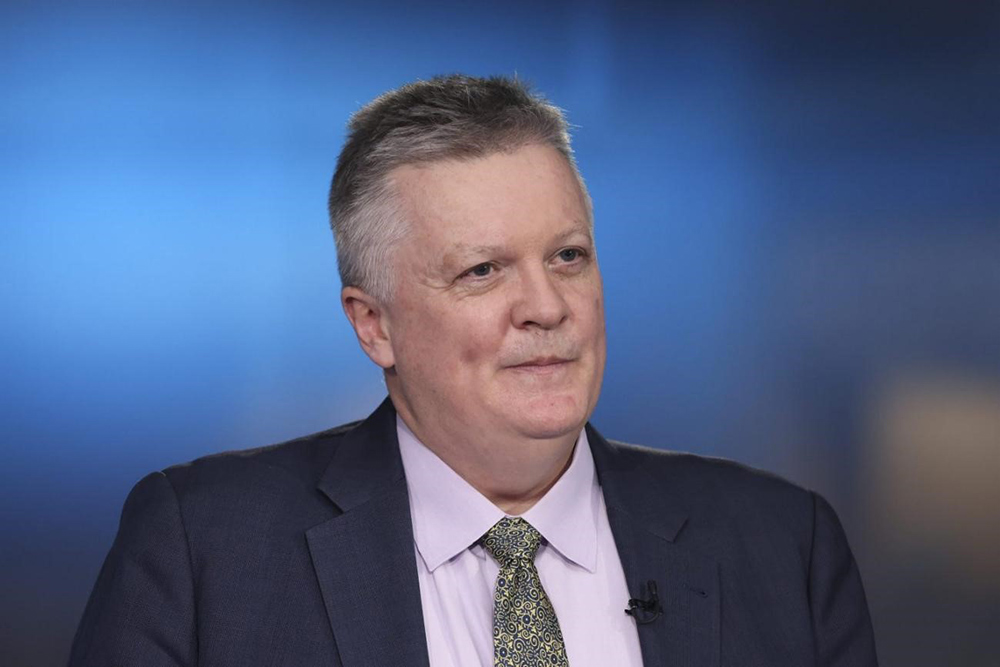
英格兰银行首席经济学家休·皮尔说,英国人需要接受他们变穷了的事实,而不是在通货膨胀急剧上升、生活水平出现历史性下降后仍然试图挽回。
皮尔周二在《超越史无前例》(Beyond Unprecedented)播客上接受采访时说:“部分英国人需要接受自己变穷了的事实,不要再试图通过抬高价格来维持自己的实际消费能力了,不管是通过提高工资还是将能源成本转嫁给消费者。”
他说,企业和工人都在玩“传递负担的游戏”,因而导致价格压力居高不下,英国的主要通胀率仍然困在两位数高位。
这番话暴露了政策制定者在抑制价格压力方面面临的挑战。加息削弱了家庭的消费能力,挤压了企业的利润率,引
发了与开展罢工要求加薪的工人们之间的冲突。
尽管这番言论与英国央行官员过去一年的立场并无二致,但皮尔更加直言不讳,暗示工人必须承担更多负担。正是出于这一点,英国央行与公共部门成千上万名对政府限薪政策感到愤怒的职员产生了冲突。
去年,英国央行行长安德鲁•贝利警告工会需要缓和涨薪要求,因而遭到工会的指责。就在上个月27日,他还说物价上涨“让我们国家变得更穷”,回避了谁应该承受损失的微妙问题。
皮尔则更为直接。他说,人们“不愿意接受这个事实,那就是,我们都变穷了,我们必须承担自己的那一份责任。”紧张的就业市场和强大的企业定价权意味着企业可以通过提高定价来转嫁成本,工人可以要求加薪,因而进一步推高通货膨胀。
皮尔说:“英国是一个天然气净进口大国,我们现在面临的情况是,相较于向世界其他地区售出的东西的价格,英国从世界上其他地区买入的东西价格上涨了很多,而英国出口的主要是服务。”
“如果你买的东西比你卖的东西价格涨了很多,你就会变穷。”
他的言论和英国央行副总裁布罗德本特周二的讲话,是货币政策委员会在下次利率决策会议之前计划中最后一次露面。这个由九人组成的委员会正在考虑是否进行第12次连续加息。在过去的一年半里,英国央行将借贷成本从不到1%提高到了4.25%。
市场押注未来几个月将继续加息,因为此前3月份人们意料之外的超高通胀数据引发了人们对价格压力持续加剧的担忧。
皮尔重申了英国央行的官方预测,他说,导致通胀居高不下的一些压力因素可能会在未来几个月消散,未来几年通胀可能会跌破2%的目标。
他还说,使英国遭受通胀打击的一些因素是“暂时的”,他再次使用了这个有争议的词,两年前,央行行长们正是用“暂时的”这个说法来推迟加息。
“我们经历了一系列通胀冲击,一个接着一个。”他说,“每一次冲击本身都是短暂的,但它们接踵而至,导致通胀一直没有消散。(财富中文网)
译者:Agatha
英格兰银行首席经济学家休·皮尔说,英国人需要接受他们变穷了的事实,而不是在通货膨胀急剧上升、生活水平出现历史性下降后仍然试图挽回。
皮尔周二在《超越史无前例》(Beyond Unprecedented)播客上接受采访时说:“部分英国人需要接受自己变穷了的事实,不要再试图通过抬高价格来维持自己的实际消费能力了,不管是通过提高工资还是将能源成本转嫁给消费者。”
他说,企业和工人都在玩“传递负担的游戏”,因而导致价格压力居高不下,英国的主要通胀率仍然困在两位数高位。
这番话暴露了政策制定者在抑制价格压力方面面临的挑战。加息削弱了家庭的消费能力,挤压了企业的利润率,引发了与开展罢工要求加薪的工人们之间的冲突。
尽管这番言论与英国央行官员过去一年的立场并无二致,但皮尔更加直言不讳,暗示工人必须承担更多负担。正是出于这一点,英国央行与公共部门成千上万名对政府限薪政策感到愤怒的职员产生了冲突。
去年,英国央行行长安德鲁•贝利警告工会需要缓和涨薪要求,因而遭到工会的指责。就在上个月27日,他还说物价上涨“让我们国家变得更穷”,回避了谁应该承受损失的微妙问题。
皮尔则更为直接。他说,人们“不愿意接受这个事实,那就是,我们都变穷了,我们必须承担自己的那一份责任。”紧张的就业市场和强大的企业定价权意味着企业可以通过提高定价来转嫁成本,工人可以要求加薪,因而进一步推高通货膨胀。
皮尔说:“英国是一个天然气净进口大国,我们现在面临的情况是,相较于向世界其他地区售出的东西的价格,英国从世界上其他地区买入的东西价格上涨了很多,而英国出口的主要是服务。”
“如果你买的东西比你卖的东西价格涨了很多,你就会变穷。”
他的言论和英国央行副总裁布罗德本特周二的讲话,是货币政策委员会在下次利率决策会议之前计划中最后一次露面。这个由九人组成的委员会正在考虑是否进行第12次连续加息。在过去的一年半里,英国央行将借贷成本从不到1%提高到了4.25%。
市场押注未来几个月将继续加息,因为此前3月份人们意料之外的超高通胀数据引发了人们对价格压力持续加剧的担忧。
皮尔重申了英国央行的官方预测,他说,导致通胀居高不下的一些压力因素可能会在未来几个月消散,未来几年通胀可能会跌破2%的目标。
他还说,使英国遭受通胀打击的一些因素是“暂时的”,他再次使用了这个有争议的词,两年前,央行行长们正是用“暂时的”这个说法来推迟加息。
“我们经历了一系列通胀冲击,一个接着一个。”他说,“每一次冲击本身都是短暂的,但它们接踵而至,导致通胀一直没有消散。(财富中文网)
译者:Agatha
Bank of England Chief Economist Huw Pill said the British people need to accept they are poorer instead of seeking to claw back a historic drop in living standards after a jump in inflation.
“Somehow in the UK, someone needs to accept that they’re worse off and stop trying to maintain their real spending power by bidding up prices, whether higher wages or passing the energy costs through onto customers,” Pill said in an interview streamed Tuesday on the “Beyond Unprecedented” podcast.
He said that firms and workers are in a “pass the parcel game” that’s causing more persistent price pressures, contributing to the UK’s main inflation rate remaining stuck in double digits.
The remarks laid bare the challenge that policy makers face in curbing price pressures. Raising interest rates has sapped the spending power of households and squeezed corporate profit margins, stoking conflict with workers who are striking to demand higher pay.
While the comment reiterated a line officials at the BOE have said for the past year, Pill’s words were more blunt in suggesting that workers must shoulder more of the burden. That puts the BOE in conflict with thousands of public sector workers angry at the government over its decision to restrain pay.
BOE Governor Andrew Bailey was rebuked last year by trade unions for warning that they need to moderate pay demands. As recently as March 27, he said rising prices “has made us poorer as a country,” sidestepping the delicate issue of who should suffer.
Pill was more direct. He said there’s a “reluctance to accept that yes, we’re all worse off and we all have to take our share.” A tight jobs market and strong corporate pricing power means that firms can pass on costs in higher prices and workers can demand wage increases, fueling inflation further.
“The UK, which is a big net importer of natural gas, is facing a situation that the price of what you’re buying from the rest of the world has gone up a lot, relative to the price of what you’re selling to the rest of the world, which is mainly services in the case of the UK,” Pill said.
“If what you’re buying has gone up a lot relative to what you’re selling, you’re going to be worse off.”
His comments along with a speech by BOE Deputy Governor Ben Broadbent earlier on Tuesday are the final scheduled appearances from Monetary Policy Committee the next rates decision. The nine-member panel is weighing weather to push through a 12th consecutive rate hike after raising borrowing costs from less than 1% to 4.25% in the past 1 1/2 years.
Markets are betting on continued hikes in the coming months after a surprisingly strong inflation reading in March stoked fears of more persistent price pressures.
Pill, reiterating the BOE’s official forecast, said some of the pressures keeping inflation high are likely to dissipate in the coming months and that inflation may dip below the 2% target in the next few years.
He also said that some elements of the inflation hitting the UK are “transitory,” reviving a word controversially used by central bankers to delay interest rate increases two years ago.
“We’ve had a series of inflation shocks that just come one after the other,” he said. “Each of those shocks was in itself transitory, but they just were timed in a way that inflation never dissipated.






